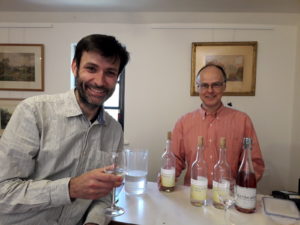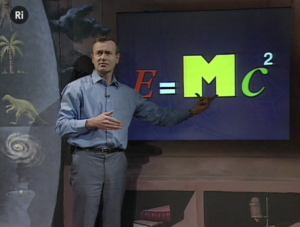 In 2016 the Royal Institution commissioned a book pulling together a ‘baker’s dozen’ of the finest Christmas Lectures since 1885. One of the lectures chosen was the 1993 lecture by Professor Frank Close entitled ‘The Cosmic Onion‘.
In 2016 the Royal Institution commissioned a book pulling together a ‘baker’s dozen’ of the finest Christmas Lectures since 1885. One of the lectures chosen was the 1993 lecture by Professor Frank Close entitled ‘The Cosmic Onion‘.
Frank’s journey into science communication started through writing for Nature and then New Scientist. A distinguished particle physicist, Frank’s CV takes in many of the world’s most important places for breakthroughs in physics: Stanford, CERN, Daresbury and Rutherford Appleton Lab. He is now Emeritus Professor at the University of Oxford.
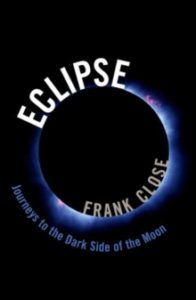 He is also one of the world’s foremost experts on eclipses, having travelled all over the world to witness them. Frank also helped found the annual ATOM Festival or Science and Technology in Abingdon.
He is also one of the world’s foremost experts on eclipses, having travelled all over the world to witness them. Frank also helped found the annual ATOM Festival or Science and Technology in Abingdon.
But it is as a writer and populiser of scientific ideas that Frank is best known. He has written critically acclaimed books on the neutrino, antimatter, the science of symmetry (‘Lucifer’s Legacy‘) and the story behind the hunt for the Higgs Bosun (‘The Infinity Puzzle‘).
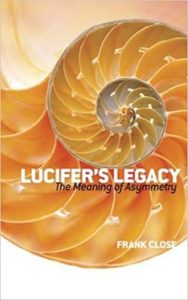
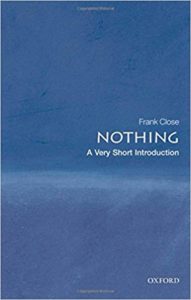
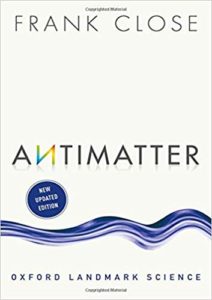
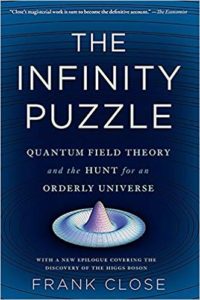
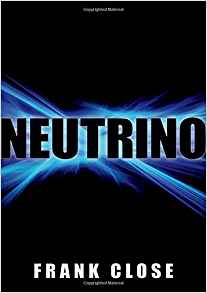
In recent years, Frank has written about the stories behind the atomic spies, and his latest book ‘Trinity: The Treachery and Pursuit of the Most Dangerous Spy in History‘ (published in 2019) details the gripping story of Klaus Fuchs, who worked on both the Manhattan Project and at the UK’s nuclear laboratory at Harwell, and who co-ordinated the leaking of critical information that allowed the Soviet Union to develop their own atomic bomb.
Frank was vice-president of the British Association for the Advancement of Science, has received the Royal Society’s Michael Faraday Prize and the Institute of Physics Kelvin Medal for outstanding contributions to science communication. Awarded an OBE in 2000 for services to science, in 2019 Frank was interviewed by Jim Al-Khalili on the BBC’s ‘The Life Scientific‘.
Such is the sheer range and history of Frank’s experiences, the episode is split into two parts.
Part 1 focuses on Science Communication: how he (accidentally) became a science writer in the first place, the story behind that groundbreaking 1993 Christmas Lecture, and finally his experiences as head of communications at CERN when he realised that effectively explaining big science to a wider world was critical in getting popular and political support for all science.
Along the way we explore how close the UK came to pulling out of CERN in the 1980s, how to create an explosion in your bare hands, and the secret to great research: it’s all about asking the right questions apparently…
Part 2 digs further into Frank’s life as a writer – both as the author of bestselling science books such as ‘Neutrino’ and ‘The Infinity Puzzle’ to his latest books that examine the history of the Atomic Spies.
We learn about how Frank got into writing (accidentally, it turns out) and the individuals in publishing who guided him along the way. We discuss the background and content of his latest book “Trinity”, about the extraordinary life – and the secrets that still persist – about nuclear spy Klaus Fuchs.
Trinity was published in 2019, but *this* interview was recorded in 2018, which explains some anomalies in our timing references. But then, perhaps that’s appropriate for someone who has spent his life studying the often weird world of space and time in such fundamental detail…
(A reminder that you can listen now on SoundCloud, iTunes and Stitcher. And for a comprehensive set of show notes, including links, analysis and organisation contact, consider becoming a supporter through Patreon – or email us for more details).
P.S. You can watch all five episodes of the Christmas Lectures – as broadcast by the BBC – on the Royal Institution website here. Accessible to anyone – young or old – it’s remains a thoroughly entertaining journey through physics, the universe and, well, everything.
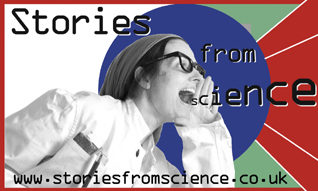
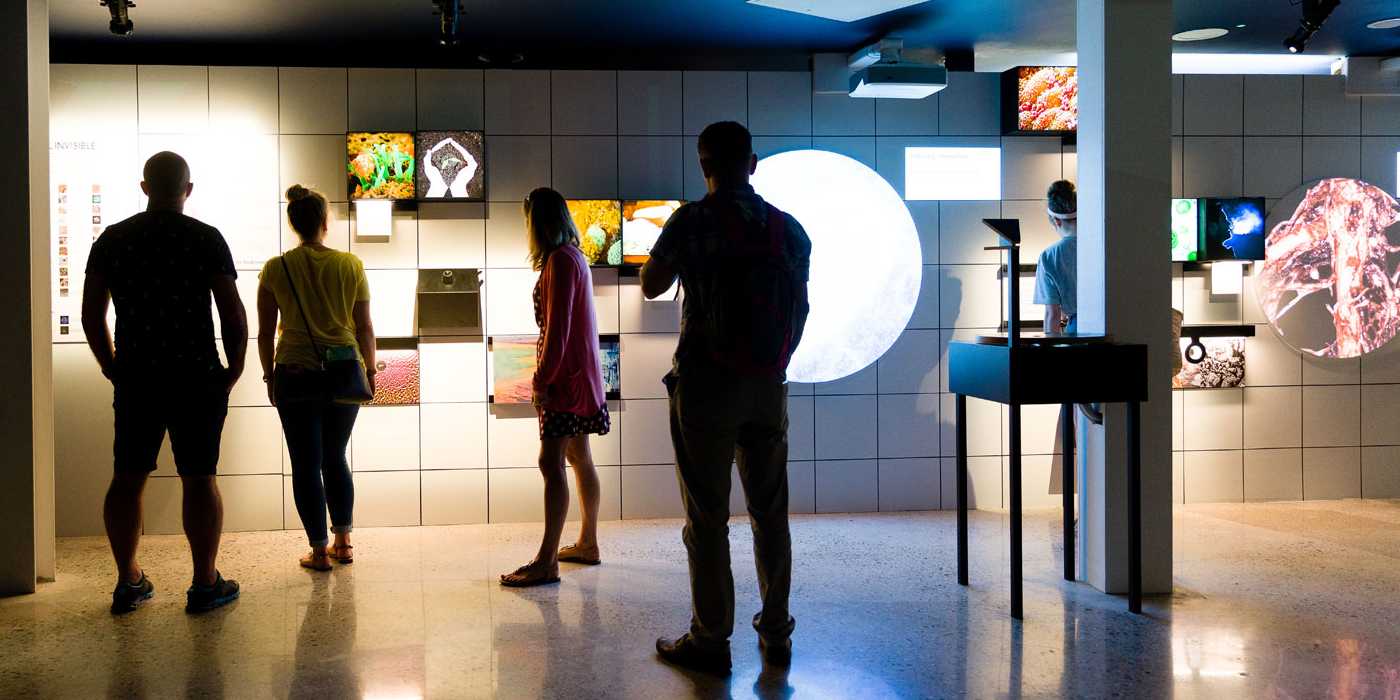
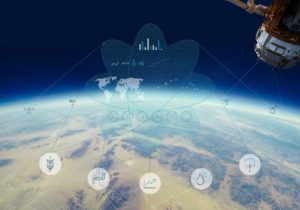 At a
At a 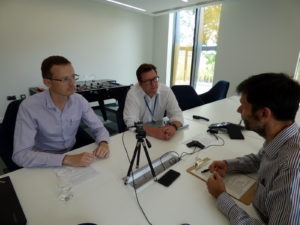 We sat down with Chief Operating Officer Philip Briscoe and Chief Technical Officer Andrew Carrel to better understand what Rezatec does and why Earth Observation science is becoming so critical: from improving crop yields to making our cities more sustainable.
We sat down with Chief Operating Officer Philip Briscoe and Chief Technical Officer Andrew Carrel to better understand what Rezatec does and why Earth Observation science is becoming so critical: from improving crop yields to making our cities more sustainable.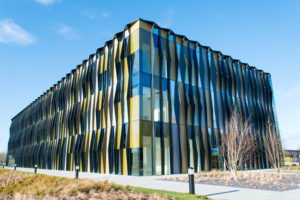 It’s genuinely exciting and Rezatec are growing fast, winning awards, and recently moved into a spanking new HQ building on the Harwell Campus (‘Quad One’). This Autumn, Rezatec joined forces with the European Space Agency (ESA) in contributing to the
It’s genuinely exciting and Rezatec are growing fast, winning awards, and recently moved into a spanking new HQ building on the Harwell Campus (‘Quad One’). This Autumn, Rezatec joined forces with the European Space Agency (ESA) in contributing to the 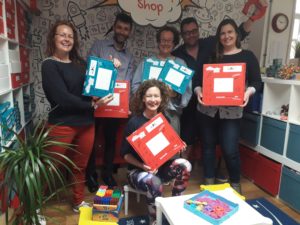 There are many people in life who are passionate about STEM, education and science, and who work hard to connect with children, to unlock a lifelong love of science. But outside mainstream education, it would be difficult to find anyone who has so consistently and brilliantly applied herself in the service of science and education as Renee Watson.
There are many people in life who are passionate about STEM, education and science, and who work hard to connect with children, to unlock a lifelong love of science. But outside mainstream education, it would be difficult to find anyone who has so consistently and brilliantly applied herself in the service of science and education as Renee Watson.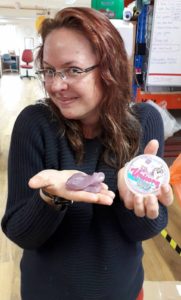 Growing up in rural Australia, with no obvious mentors or scientists to ignite her own spark (save one, which we learn about in this episode of Stories from Science) she is almost uniquely qualified to identify and connect to her diamonds in the rough. These are the smart, motivated, curious children who fall through the cracks of mainstream education and yet are exactly the kinds of young people who will see things differently, and provide the new ideas and creativity in science that will solve problems and move society forward.
Growing up in rural Australia, with no obvious mentors or scientists to ignite her own spark (save one, which we learn about in this episode of Stories from Science) she is almost uniquely qualified to identify and connect to her diamonds in the rough. These are the smart, motivated, curious children who fall through the cracks of mainstream education and yet are exactly the kinds of young people who will see things differently, and provide the new ideas and creativity in science that will solve problems and move society forward.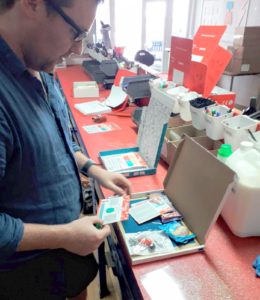 The Curiosity Box allows children and their families to do science and experiment in their own homes through a subscription service which sees a regular box crammed full of science fizz through the letterbox (metaphorically), with the aim to make science as common a topic to discuss around the kitchen table as politics and TV shows.
The Curiosity Box allows children and their families to do science and experiment in their own homes through a subscription service which sees a regular box crammed full of science fizz through the letterbox (metaphorically), with the aim to make science as common a topic to discuss around the kitchen table as politics and TV shows.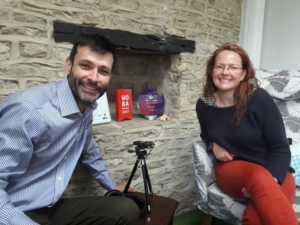 It’s difficult not to get swept up in this enthusiasm for revolution. In this inspiring hour-long interview, we discover why science capital is like carrying a suitcase, we learn the constituent parts of Unicorn Poo, and go toe-to-toe with STEM Barbie.
It’s difficult not to get swept up in this enthusiasm for revolution. In this inspiring hour-long interview, we discover why science capital is like carrying a suitcase, we learn the constituent parts of Unicorn Poo, and go toe-to-toe with STEM Barbie.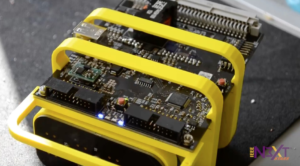 What could be more familiar than the humble electric battery? They’ve been around for years, factories knock them out regular as clockwork and we’re pretty familiar with them. They are in our phones, our remote controls, our game controllers and our cars.
What could be more familiar than the humble electric battery? They’ve been around for years, factories knock them out regular as clockwork and we’re pretty familiar with them. They are in our phones, our remote controls, our game controllers and our cars.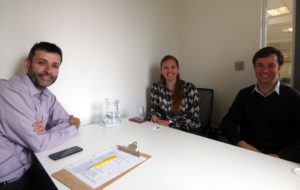 In a constantly surprisingly – and genuinely inspirational – hour-long podcast, we talked to Carolyn Hicks and Christoph Birkl of Oxford University spin-out Brill Power. Emerging from Oxford University’s Department of Engineering Science, Brill is looking to bring about a revolution in battery control systems to extend the lifespan of multi-cell batteries.
In a constantly surprisingly – and genuinely inspirational – hour-long podcast, we talked to Carolyn Hicks and Christoph Birkl of Oxford University spin-out Brill Power. Emerging from Oxford University’s Department of Engineering Science, Brill is looking to bring about a revolution in battery control systems to extend the lifespan of multi-cell batteries.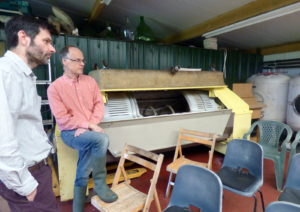 It turns out that there is a lot of science in winemaking. It even has its own name: oenology (pronounced ee-nology, as I discovered during my interview) and you don’t need to travel to France, California or Australia to learn about it. Here in Oxfordshire there is Bothy Vineyard, a small and rather wonderful creator of award-winning aromatic wines, a product of a surprising slice of British countryside with a singular geology and micro-climate.
It turns out that there is a lot of science in winemaking. It even has its own name: oenology (pronounced ee-nology, as I discovered during my interview) and you don’t need to travel to France, California or Australia to learn about it. Here in Oxfordshire there is Bothy Vineyard, a small and rather wonderful creator of award-winning aromatic wines, a product of a surprising slice of British countryside with a singular geology and micro-climate.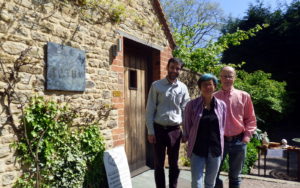
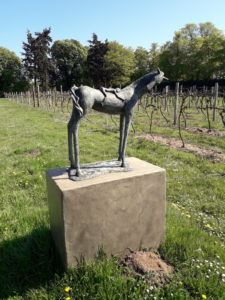 But Bothy is a pioneer in striving for sustainability in its vineyard, experimenting and persevering with biodiversity areas, and soil enrichment techniques to improve the soil and bring it ‘back to life’ from previous farming methods. In doing so, they are tapping into a long and ancient tradition of winemaking in the Vale of the White Horse.
But Bothy is a pioneer in striving for sustainability in its vineyard, experimenting and persevering with biodiversity areas, and soil enrichment techniques to improve the soil and bring it ‘back to life’ from previous farming methods. In doing so, they are tapping into a long and ancient tradition of winemaking in the Vale of the White Horse.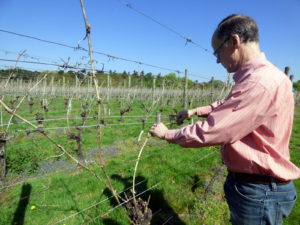 This way of running a vineyard is not without risk, and the threat of a devastating frost always hovers (quite literally) over the vines every springtime. This means wine production varies, from approximately 5,500 bottles to none. In the episode we talk about the weird and wonderful techniques that can be used to protect your harvest shared amongst vineyard owners from around the world.
This way of running a vineyard is not without risk, and the threat of a devastating frost always hovers (quite literally) over the vines every springtime. This means wine production varies, from approximately 5,500 bottles to none. In the episode we talk about the weird and wonderful techniques that can be used to protect your harvest shared amongst vineyard owners from around the world.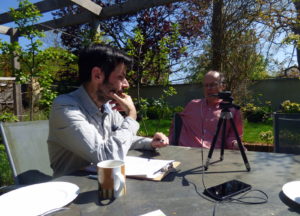 This episode was such a joy to record – not just because of Richard and Sian’s obvious passion and expertise shine through, or the fact that they were both so open and generous in guiding us through the process. We sat in a glorious part of the Oxfordshire countryside, and future episodes will have to go some way to beat that location in nature’s recording studio. There’s a bit of wind, and at one stage a stunt plane buzzes us from the nearby airfield – but apart from that, it really was an unexpected nirvana of science chat. Enjoy.
This episode was such a joy to record – not just because of Richard and Sian’s obvious passion and expertise shine through, or the fact that they were both so open and generous in guiding us through the process. We sat in a glorious part of the Oxfordshire countryside, and future episodes will have to go some way to beat that location in nature’s recording studio. There’s a bit of wind, and at one stage a stunt plane buzzes us from the nearby airfield – but apart from that, it really was an unexpected nirvana of science chat. Enjoy.